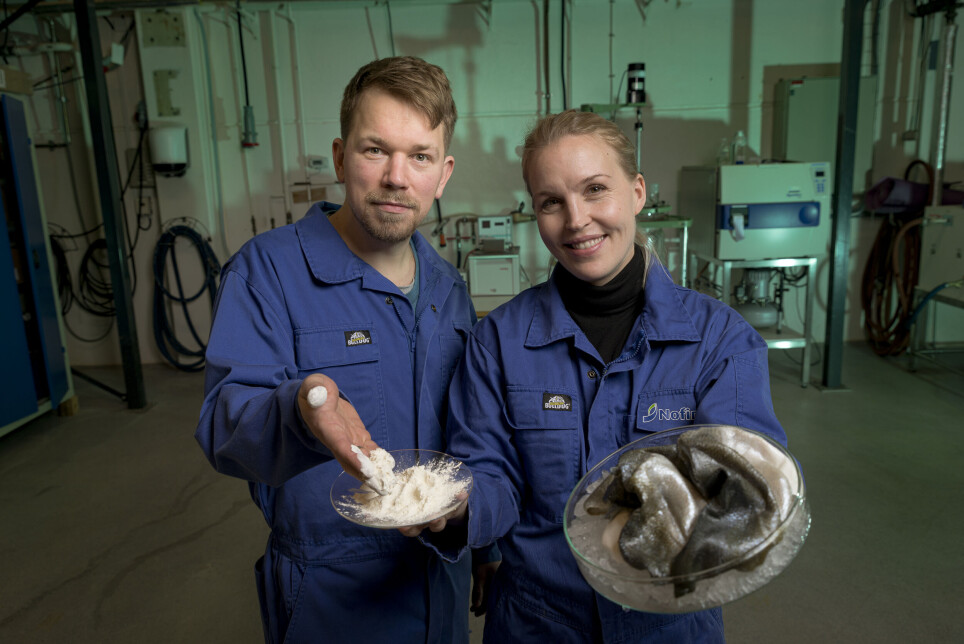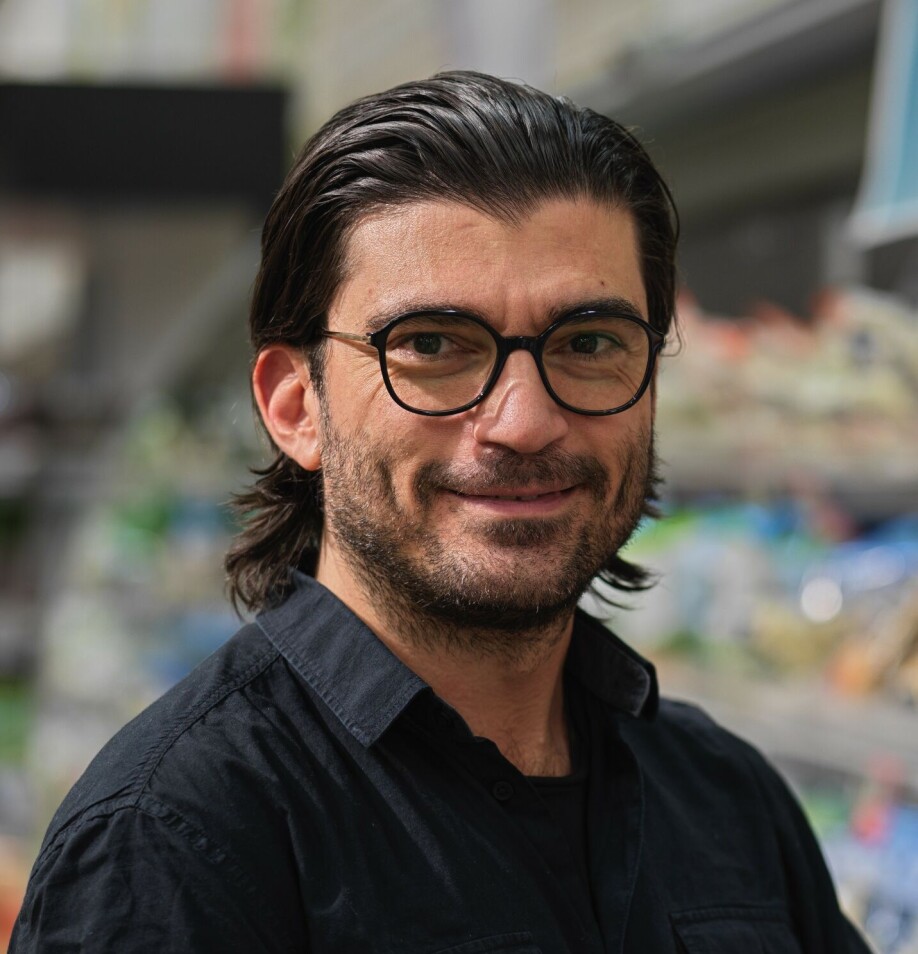THIS ARTICLE/PRESS RELEASE IS PAID FOR AND PRESENTED BY Nofima The Norwegian Institute of Food, Fisheries and Aquaculture Research - read more

Giving the consumer a voice in seafood research
A team of European scientists wants to utilise marine co-products and invasive species as ingredients in new products, such as creams and dietary supplements. Interestingly, they want consumers to control the direction that the research takes.
Collagen and chitosan are natural biopolymers that are often used in cosmetics and dietary supplements. The market for these ingredients is enormous, especially for collagen. The collagen market alone is valued at about $8.6 billion worldwide, according to Forbes.
Nofima leads the BlueCC project, in which a team of scientists extract collagen and chitin from invasive species that appear in European waters or end up as by-catch from commercial fishing. They also aim to find a way to exploit lumpfish, a cleaner fish from aquaculture.
Lumpfish, starfish, and jellyfish may become valuable sources of collagen. Chitosan is a derivative of chitin, which, in turn, is extracted from crabs and other crustaceans.

Consumer-drive approach
Runar Gjerp Solstad leads the project from Nofima in Tromsø, Norway. He has high ambitions for what the project will achieve, and explains that the aim is twofold:
“We have taken a more consumer-driven approach to this research. This means that we are conducting surveys to identify consumer demand and can adjust our research accordingly,” says Solstad. “We will then try to extract collagen and chitin from marine by-products using more sustainable methods.”
BlueCC has eight partners from six different countries and has been allocated funding of €2 million from the BlueBio Cofund. Seven academic partners and a Norwegian industrial partner are taking part in the project, which runs until the autumn of 2023.
'Exciting lead'
“We find that research becomes a more democratic process when you actually check what consumers need and want,” says Themis Altintzoglou, a market researcher at Nofima.
Last year, he conducted a survey that involved over a thousand consumers in the UK. The aim was to map the demand for potential products containing collagen or chitosan deriving from specific marine species.
“Putting ‘the consumer first’ is a bit unique in this type of research. Using market research as a key part of the development process is also new. The way market researchers ask questions enables them to identify what the consumer wants and needs,” Solstad says.
After the survey results are analysed, it is possible to make informed strategies for product development and research.
“We already have a very exciting lead that we have started to follow. It may increase our chances of success with new products,” Solstad reveals.
Environmental focus
Solstad adds that the project also has significant ‘green’ ambitions. In addition to using underutilised marine resources, the team of scientists will also adopt more sustainable extraction methods.
“Collagen and chitin are insoluble in water. Therefore, a lot of acids or alkalis is required to extract the raw material. We want to opt for more environmentally friendly chemicals, and right now we are looking at using a special strain of bacteria for extraction purposes,” explains Solstad.
This special strain of bacteria is found at research partner IME Fraunhofer in Germany. They hope it can be the key to a more sustainable extraction of chitin.
'Exceptionally ambitious'
Solstad admits that the project has bold aims. In fact, the research funders expressed concern that the project was trying out too many things at the same time.
“They stated that we were exceptionally ambitious. But I think that it is all too common for people to not be ambitious enough, to be surer of their success,” he says, and adds:
“We are going to find new methods for turning marine bio-waste into by-products and make prototypes for new and eco-friendly products. We believe that pushing oneself to explore something new is valuable in itself.”
See more content from Nofima:
-
Red algae grown in wastewater from fish-farming facilities could become sustainable salmon feed
-
Pumpkins are good for more than just Halloween decorations
-
This is how temperature affects a salmon's health and growth
-
Study: Omega-3 and zinc is a powerful duo for salmon
-
Fish may turn yellow if frozen too fresh
-
Is it better if food is packaged in plastic or paperboard?






































